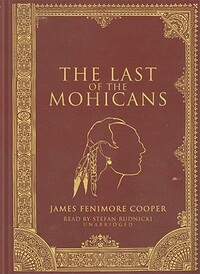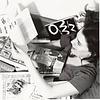Take a photo of a barcode or cover
adventurous
medium-paced
Plot or Character Driven:
A mix
Strong character development:
No
Loveable characters:
Complicated
Diverse cast of characters:
Yes
Flaws of characters a main focus:
No
adventurous
tense
medium-paced
Plot or Character Driven:
Plot
Strong character development:
No
Loveable characters:
No
Diverse cast of characters:
No
Flaws of characters a main focus:
No
I imagine in it's time this may have been interesting for people who wanted a peek into Native American history, but IMHO it just doesn't hold up. Very heavy handed in its voice of the heroic white man's description of the "savages". ugh. Throw in a couple damsels in distress... I just couldn't get through it. Instead read Mark Twain's criticism of it. Now that's some writing.
Insanely boring in between the screaming/crying/shrieking of the blond female that the men love for some reason.
The first time I read this book (for class), I gave it 3 stars. Only Lord knows why I felt so moved to give it this high a ranking, but the second time (again for class, a year later) it became clear to me it definitely deserved a lower grade. I get that it's a class and blah blah it's important, but I just can't stand it. So boring.
The wild rush of action in this classic frontier adventure story has made The Last of the Mohicans the most popular of James Fenimore Cooper’s Leatherstocking Tales. Deep in the forests of upper New York State, the brave woodsman Hawkeye (Natty Bumppo) and his loyal Mohican friends Chingachgook and Uncas become embroiled in the bloody battles of the French and Indian War. The abduction of the beautiful Munro sisters by hostile savages, the treachery of the renegade brave Magua, the ambush of innocent settlers, and the thrilling events that lead to the final tragic confrontation between rival war parties create an unforgettable, spine-tingling picture of life on the frontier. And as the idyllic wilderness gives way to the forces of civilization, the novel presents a moving portrayal of a vanishing race and the end of its way of life in the great American forests.
This is a epic tale of deception and kidnapping. It is wrought with thrilling events which lead you through the historical aspects of the novel. It also gives an insight to the states during the times when the rival war parties were on the verge of vanishing. I loved this type of writing as it allows me to imagine the situations more vividly and allows me to get a real sence of being for the characters. This is a book that i think everyone should read at some point in there life. There is also and eliment of a love story between Duncan and Alice which is smuldering under the main story line.
This is a epic tale of deception and kidnapping. It is wrought with thrilling events which lead you through the historical aspects of the novel. It also gives an insight to the states during the times when the rival war parties were on the verge of vanishing. I loved this type of writing as it allows me to imagine the situations more vividly and allows me to get a real sence of being for the characters. This is a book that i think everyone should read at some point in there life. There is also and eliment of a love story between Duncan and Alice which is smuldering under the main story line.
It's a good audiobook--the reader is talented, and lends the different characters real depth. My full review is here: http://booksforears.com/2008/01/14/the-last-of-the-mohicans-by-james-fenimore-cooper/
The novel, well, I would strangle Natty Bumppo if I had to travel with him. Prattle prattle condescend prattle. Uncas, Chingachgook, and Cora strike me as the real heroes of the story. Cooper rambles a bit too much, and the book could use a good edit. A good story, nonetheless.
The novel, well, I would strangle Natty Bumppo if I had to travel with him. Prattle prattle condescend prattle. Uncas, Chingachgook, and Cora strike me as the real heroes of the story. Cooper rambles a bit too much, and the book could use a good edit. A good story, nonetheless.
This book is brilliant anti-Indigenous propaganda which, given the timing and context, probably directly inspired the killing of Native people. For being from the early 1800s, it’s actually quite easy to read. The imagery is clear. And if you are a human being capable of any amount of empathy, it’s morally atrocious. It’s amazing to me that this book has been in print continuously since it’s original printing. This country yall.
This book is essential to understanding American West literature, artwork, and history, because it many ways it started it all. However, based solely on entertainment value, I give it a meh.
For those who dislike lengthy narrative, detailed description on nature, terrain, wild life and people, they will not find this book entertaining. But those who love good adventure story with not too many shitty romance in it, well, this book might just be the one.
The year was 1757. The British and the French were fighting for land on the north eastern side of the current US soil, bordering with Canada. However, they're not the only ones in feud. The Indian tribe of Huron (Maqua/Iroqois) was also in conflict with the Delaware (Lenape). There was already relationship established between the white folks and the red skins, though no full occupation/colonization yet. In the book, the Hurons sided with the French, while the Delaware stayed neutral, if not tend to side with the British. Please note that for unknown reason, Cooper was not being very accurate on this detail.
Anyway, to cut things short, in this time of turbulence, Cora and Alice Munro, the daughters of Colonel Munro, the commander of William Henry Fort, decided to visit their father in his dwelling. They were accompanied by the chivalric Major Heyward and an Indian runner named Magua. Later, they found out that Magua worked with the French and planned to kidnap Cora and Alice because he wanted to seek revenge with Col. Munro due to a past grudge.
Rescue came, in the forms of three men, one is an Indian-wannabe, a skillful scout/rifleman named Hawk-eye and Chingachgook and his son, Uncas, both are the last of the Mohican tribe. The three of them are surely attractive for the readers, especially the Mohicans, who are intriguing enough, yet valiant and noble.
Cora and Alice managed to reunite with their fathers, but it's only for a while. The William Henry Fort was under a siege by the French and finally defeated and the residents were forced to leave. During their flight, a dreadful tragedy occurred, resulted in the second kidnapping of Cora and Alice. This time they were taken to the Huron settlement. Our heroes then started a long journey through the wild (again) to track the women, which finally led to an ultimate face-off between the Hurons and the Delawares.
Critics said that Cooper is the American version of Sir Walter Scott (the author Ivanhoe, Rob Roy and Waverley). Yeah well, maybe. The parlance, the heroine character (Cora reminds me of Rebecca from Ivanhoe, who is not the stereotypical nineteenth-century heroine), the tendency to relate with actual events and historical figures...
Going back to the characters, the most out-spoken one, i.e. Hawk-eye, embodied a soon-to-be-emerged pioneer mentality (it was almost the dawn of "Westward Movement"). He was an individualist, a skeptic, a pragmatist, who loved Chingachgook and Uncas dearly, as well as feared by his enemies, who named him La Longue Carabine (means 'long rifle').
All in all, this is an awesome book about a magnificent race who nearly fades away. A savage civilization or a civilized savagery? Nay, we're all savages in our way.
The year was 1757. The British and the French were fighting for land on the north eastern side of the current US soil, bordering with Canada. However, they're not the only ones in feud. The Indian tribe of Huron (Maqua/Iroqois) was also in conflict with the Delaware (Lenape). There was already relationship established between the white folks and the red skins, though no full occupation/colonization yet. In the book, the Hurons sided with the French, while the Delaware stayed neutral, if not tend to side with the British. Please note that for unknown reason, Cooper was not being very accurate on this detail.
Anyway, to cut things short, in this time of turbulence, Cora and Alice Munro, the daughters of Colonel Munro, the commander of William Henry Fort, decided to visit their father in his dwelling. They were accompanied by the chivalric Major Heyward and an Indian runner named Magua. Later, they found out that Magua worked with the French and planned to kidnap Cora and Alice because he wanted to seek revenge with Col. Munro due to a past grudge.
Rescue came, in the forms of three men, one is an Indian-wannabe, a skillful scout/rifleman named Hawk-eye and Chingachgook and his son, Uncas, both are the last of the Mohican tribe. The three of them are surely attractive for the readers, especially the Mohicans, who are intriguing enough, yet valiant and noble.
Cora and Alice managed to reunite with their fathers, but it's only for a while. The William Henry Fort was under a siege by the French and finally defeated and the residents were forced to leave. During their flight, a dreadful tragedy occurred, resulted in the second kidnapping of Cora and Alice. This time they were taken to the Huron settlement. Our heroes then started a long journey through the wild (again) to track the women, which finally led to an ultimate face-off between the Hurons and the Delawares.
Critics said that Cooper is the American version of Sir Walter Scott (the author Ivanhoe, Rob Roy and Waverley). Yeah well, maybe. The parlance, the heroine character (Cora reminds me of Rebecca from Ivanhoe, who is not the stereotypical nineteenth-century heroine), the tendency to relate with actual events and historical figures...
Going back to the characters, the most out-spoken one, i.e. Hawk-eye, embodied a soon-to-be-emerged pioneer mentality (it was almost the dawn of "Westward Movement"). He was an individualist, a skeptic, a pragmatist, who loved Chingachgook and Uncas dearly, as well as feared by his enemies, who named him La Longue Carabine (means 'long rifle').
All in all, this is an awesome book about a magnificent race who nearly fades away. A savage civilization or a civilized savagery? Nay, we're all savages in our way.




